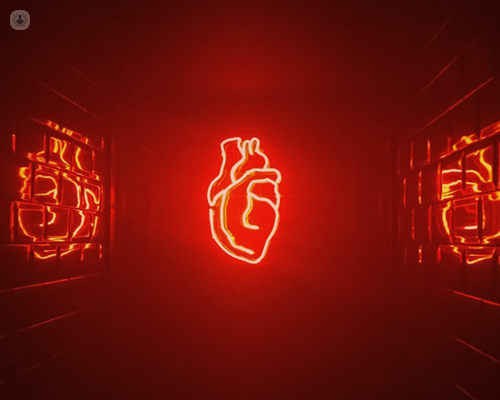What's involved in a cardiac MRI imaging appointment?
Escrito por:A cardiac MRI (magnetic resonance imaging) is a non-invasive test that uses powerful magnets and radio waves to create detailed images of the heart and surrounding blood vessels. It’s often used to assess the structure and function of the heart, diagnose heart conditions or monitor the progression of diseases.
In this article, leading consultant cardiologist Dr Marco Spartera tells you what you can expect during a cardiac MRI appointment.

What happens before the appointment?
- Preparation: Generally, there’s no special preparation required for a cardiac MRI. However, you may be advised to avoid caffeine on the day of the test, as it can affect heart rate.
- Medical history: Before the scan, you’ll be asked about any metal implants, pacemakers, or other electronic devices, as these can interfere with the MRI. It's important to inform your healthcare team about any such devices.
- Clothing: You will likely be asked to change into a hospital gown and remove any metal jewellery or accessories. Personal items such as watches, keys, or phones should also be left outside the MRI room.
What happens during the scan?
- Positioning: You’ll lie on a sliding table that moves into the MRI machine, which is shaped like a large, cylindrical tube. The technician will position you so your heart is in the centre of the machine’s magnetic field.
- Monitoring: Small electrodes will be placed on your chest to monitor your heart rate throughout the scan. You may also have a blood pressure cuff and oxygen monitor attached to track your vital signs.
- Contrast dye: In some cases, a contrast agent (gadolinium) is injected into a vein in your arm to improve the clarity of the images. This helps highlight certain areas of the heart or blood vessels.
- The scan itself: The MRI machine makes loud tapping or thumping noises during the scan, but you’ll be provided with earplugs or headphones to reduce the noise. The scan typically lasts between 30 and 90 minutes, depending on the complexity of the images required.
What happens after the scan?
- Results: The images are analysed by a radiologist or cardiologist who will interpret the results and share them with your doctor. The findings may help in diagnosing conditions such as heart valve disease, cardiomyopathy, congenital heart defects, or coronary artery disease.
- Follow-up: If any issues are identified during the MRI, your doctor may recommend additional tests or a treatment plan based on the findings.
A cardiac MRI is a safe and effective way to get a detailed view of the heart’s structure and function without exposing you to radiation.
Do you require expert cardiology treatment? Arrange a consultation with Dr Spartera via his Top Doctors profile.


